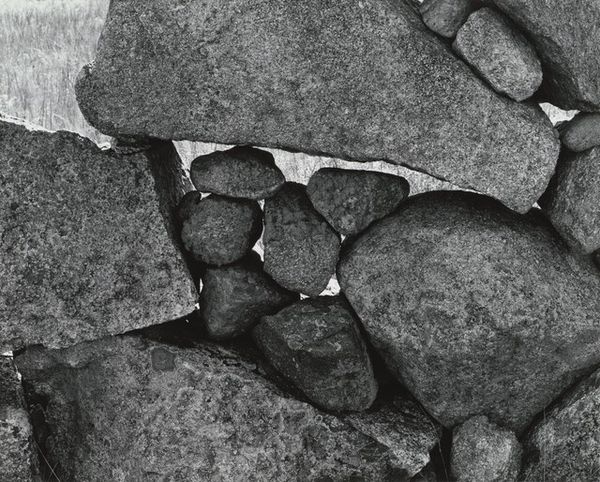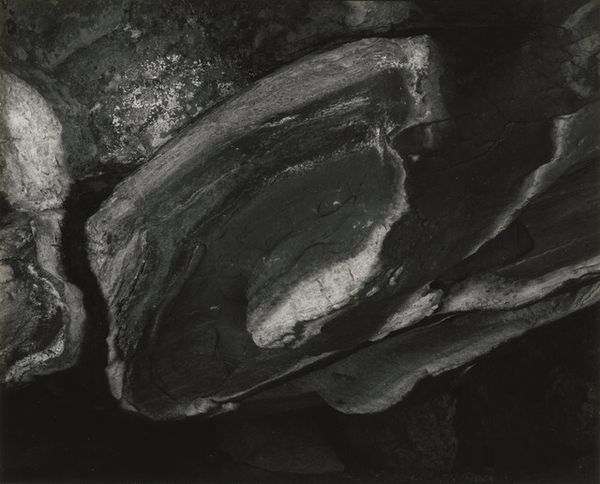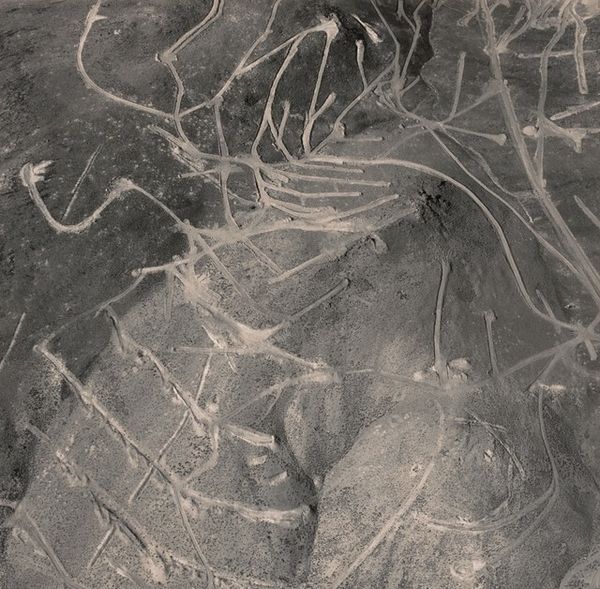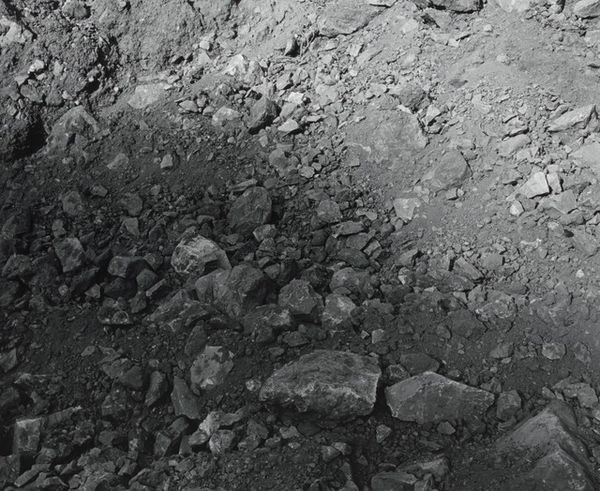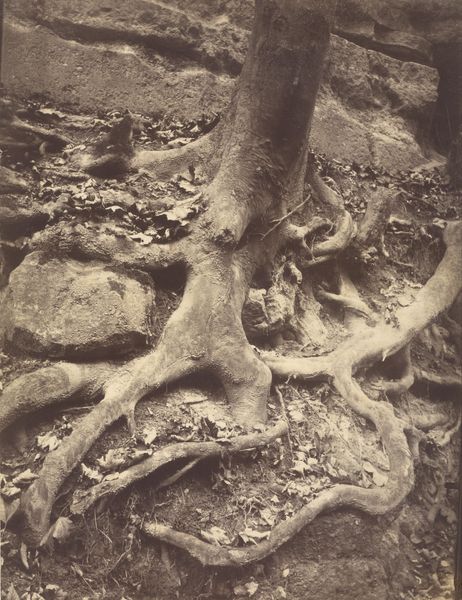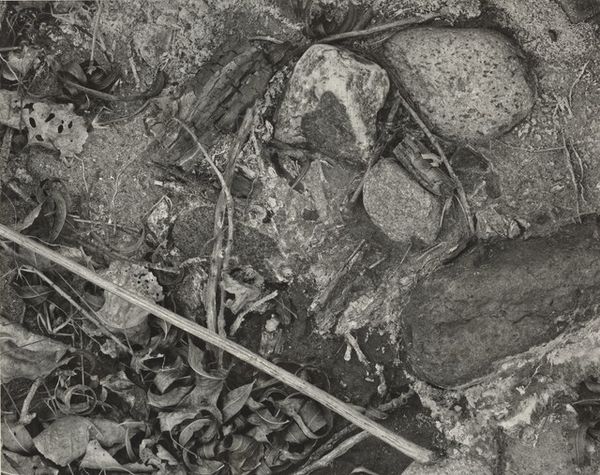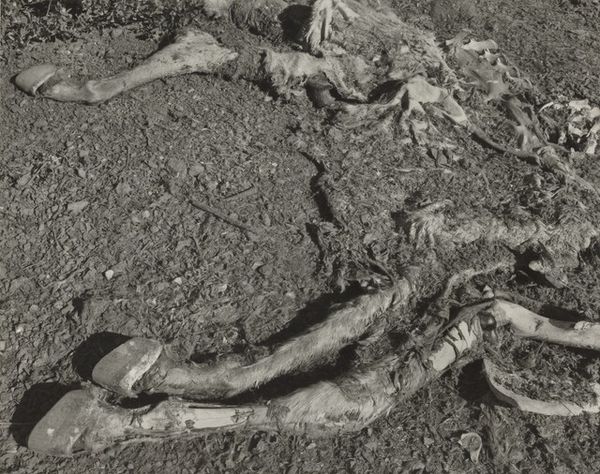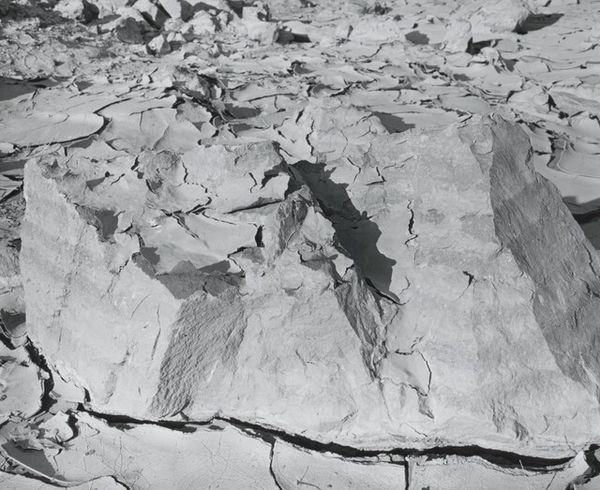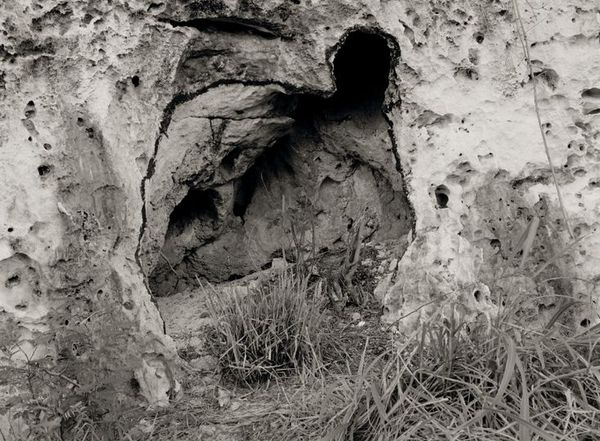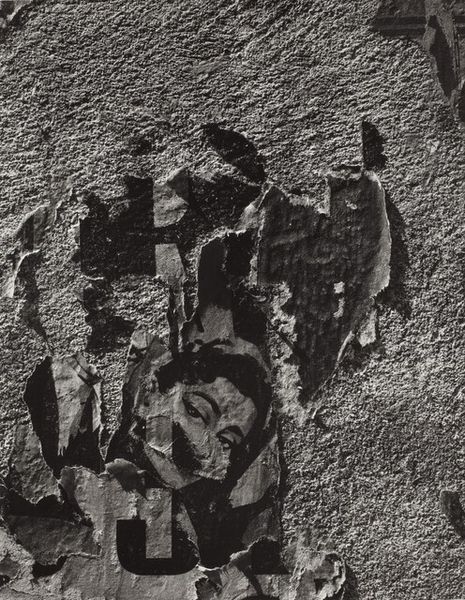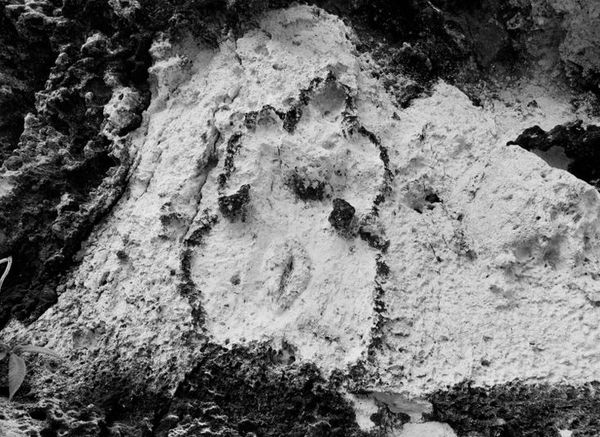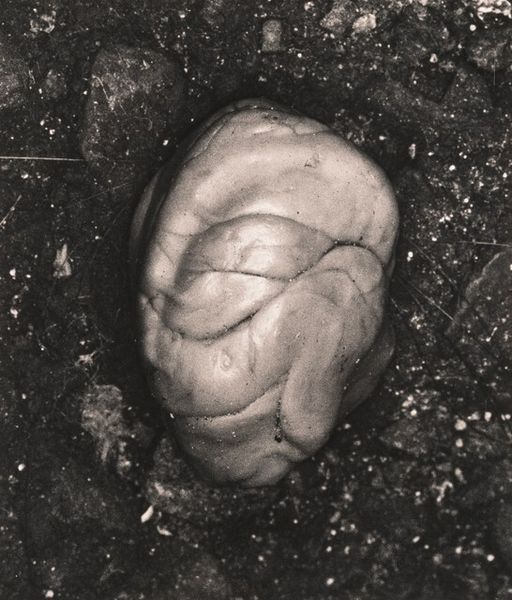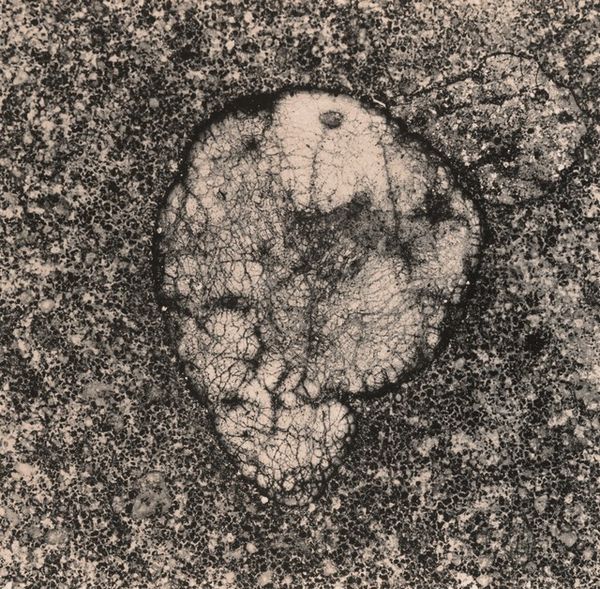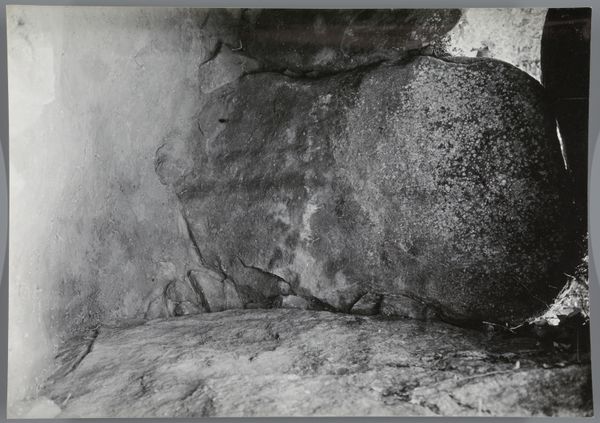
Gigantic Head Cut in the Solid Rock, Lately Discovered near Smyrna at the Entrance of a Cave 1866
0:00
0:00
carving, photography, sculpture
#
portrait
#
carving
#
landscape
#
charcoal drawing
#
figuration
#
photography
#
ancient-mediterranean
#
sculpture
#
charcoal
Dimensions: image/sheet: 21.9 × 27 cm (8 5/8 × 10 5/8 in.)
Copyright: National Gallery of Art: CC0 1.0
Editor: This photograph from 1866, entitled "Gigantic Head Cut in the Solid Rock, Lately Discovered near Smyrna at the Entrance of a Cave" by Alexander Svoboda, it looks like an enormous carving in rock! The texture is so raw, and the subject seems part of the stone itself. What stands out to you in this work? Curator: The photograph captures, primarily, texture. Notice how Svoboda uses light and shadow to accentuate the geological characteristics of the rock face alongside the deliberate carving. Do you perceive a contrast in form? Editor: Yes, the deliberate, although worn, lines of the face against the rough natural rock. Almost like the human form emerging. How do the materials inform its presence? Curator: Precisely. The roughness suggests an ancient origin, before advanced tool-making, though the symmetrical placement of the eyes suggests intentionality. Further, the figure's eyes form parallel lines of sight. What meaning emerges from this? Editor: I didn't notice the intentional placement of the eyes. That makes me think about the artist trying to make an imposing figure in such an imposing landscape. So form is less about the surface representation of the person but is instead about making meaning within a geological context? Curator: I propose to you the idea of an imposing, naturally emerging man, as evidenced by its rock-hewn creation. Editor: Interesting, so our engagement with art isn't just seeing the thing itself, but understanding its existence with regards to texture, scale, light, shadow, form, etc. The materials contribute meaning, they're not just there. Curator: Correct, our analytical perspective facilitates further appreciation.
Comments
No comments
Be the first to comment and join the conversation on the ultimate creative platform.
